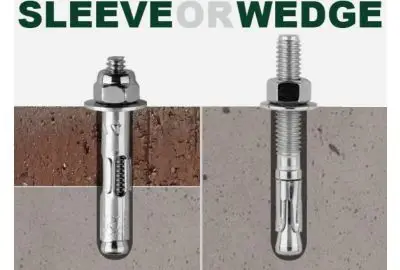hex head stud bolt manufacturers
Nov . 17, 2024 07:22 Back to list
hex head stud bolt manufacturers
An Insight into Hex Head Stud Bolt Manufacturers
When it comes to the manufacturing industry, fasteners are essential components that play a pivotal role in the assembly of various structures and machinery. Among these fasteners, hex head stud bolts are crucial for providing the necessary strength and reliability to joints in diverse applications, from automotive to construction. Understanding the manufacturing process, the materials used, and the market dynamics of hex head stud bolt manufacturers can shed light on their significance in modern engineering.
What are Hex Head Stud Bolts?
Hex head stud bolts are a type of fastener characterized by a hexagonal head and a threaded body. They are designed to be screwed into a nut or tapped hole, ensuring a tight and secure fit. Their design allows for the easy application of tools, making them a preferred choice in various assemblies. The hexagonal shape enables even torque distribution, reducing the risk of stripping and providing enhanced durability.
Stud bolts can be categorized into two main types fully threaded and partially threaded. Fully threaded bolts offer increased flexibility and can be adjusted according to the specific requirements of the application, while partially threaded bolts are often used in situations where the threaded length must be limited.
Materials Used in Manufacturing
The choice of material for hex head stud bolt manufacturing is critical, as it directly impacts the performance and durability of the fasteners. Common materials include
- Carbon Steel Known for its high strength and affordability, carbon steel is the most widely used material for manufacturing hex head stud bolts. It can be treated with coatings like zinc plating to enhance corrosion resistance.
- Stainless Steel Preferred for applications in harsh environments, stainless steel offers excellent corrosion resistance. It is ideal for marine, chemical, and food processing industries where exposure to moisture and chemicals is common.
- Alloy Steel For applications requiring enhanced mechanical properties, alloy steels are often utilized. They are treated through processes like heat treatment to achieve desired strength and toughness.
- Other Materials Depending on specific application needs, manufacturers may also employ materials like titanium and brass, which offer unique characteristics such as lightweight and corrosion resistance.
Manufacturing Process
hex head stud bolt manufacturers

The manufacturing process of hex head stud bolts involves several stages
1. Material Procurement High-quality raw materials are sourced from reliable suppliers to ensure performance standards are met.
2. Forging The process begins with forging metal rods into the desired shape, forming the head and shank of the bolt.
3. Machining The forged pieces are then machined to create precise threads. CNC (Computer Numerical Control) machines are often employed to ensure accuracy and consistency.
4. Heat Treatment This step involves heating the bolts and then cooling them under controlled conditions to improve their hardness and tensile strength.
5. Finishing Processes Various surface treatments, such as coating and plating, are applied to enhance corrosion resistance and improve aesthetic appeal.
6. Quality Control Rigorous testing and inspection processes are conducted to verify that the manufactured bolts meet industry standards and specifications before they are packaged and shipped.
Market Dynamics
The demand for hex head stud bolts is driven by various industries, including construction, automotive, aerospace, and manufacturing. With the growing emphasis on infrastructure development and industrialization, the market for these fasteners is expected to witness substantial growth.
Additionally, manufacturers face challenges such as fluctuating raw material prices, the need for compliance with stringent quality standards, and competition from low-cost producers in emerging markets. However, advancements in technology and manufacturing processes are enabling manufacturers to enhance efficiency and reduce costs while maintaining high-quality output.
Conclusion
Hex head stud bolts are integral components in numerous applications, ensuring the stability and safety of various structures and machinery. Understanding the intricacies of their manufacturing process, material selection, and the market landscape provides valuable insights into their critical role in the engineering world. As industries continue to evolve, hex head stud bolt manufacturers must adapt and innovate to meet the ever-growing demands and challenges of the market.
Latest news
-
Premium Phosphated Drywall Screws Supplier | Durable, Rust-Resistant
NewsAug.27,2025
-
Reliable Wire Bolts Suppliers | Quality Zinc Plated Fasteners
NewsAug.26,2025
-
Wire Bolts Suppliers: Durable & Reliable Fasteners for Every Project
NewsAug.25,2025
-
Premium Cabinet Bolts Supplier | Wholesale & Custom Solutions
NewsAug.24,2025
-
Reliable Axle Nuts Supplier | Quality & Precision Fasteners
NewsAug.23,2025
-
Durable Bolts for Lawn Mower Handle - Top Supplier & Manufacturer
NewsAug.22,2025
